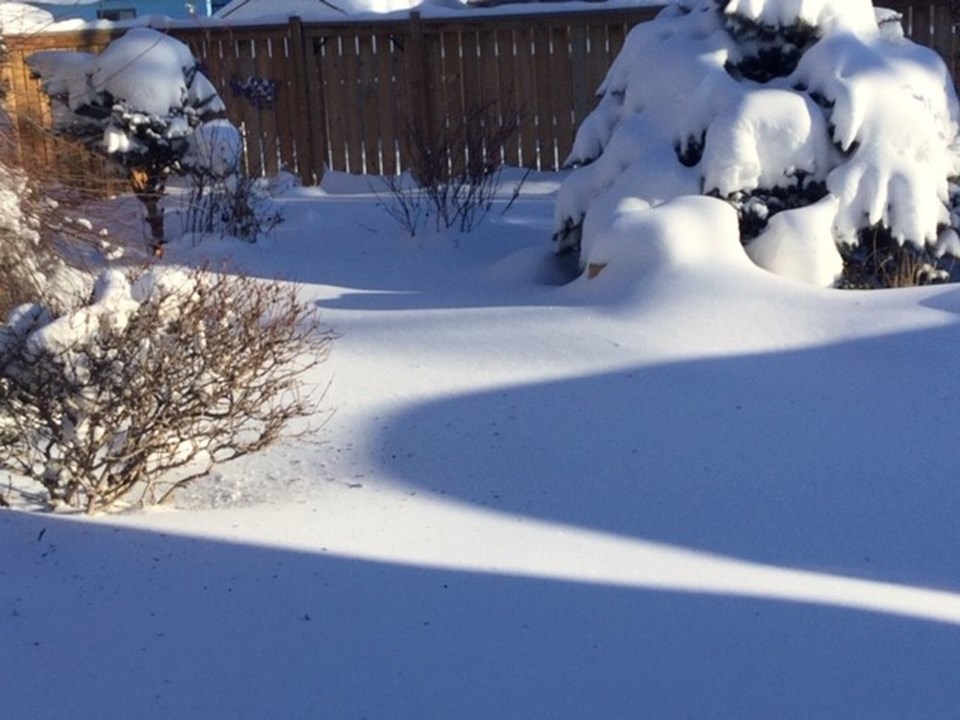YORKTON - The snow is disappearing nicely, slowly but surely, and I’m sure many of us are able to see small patches of the garden appearing. I know we’re all thinking about this year’s planting list, but no matter what we are planting, we want to aim for providing the best soil possible.
So, it’s time to talk about compost. Compost is natural, organic, pure brown gold that will leave your entire garden saying “Wow!”. And it doesn’t matter how big or small your garden is, or whether it is a new garden or an established one. Soil can always benefit from amending.
Composting is easy to do, and a valuable way to “recycle” organic material that might otherwise end up in garbage bags in the landfill. Compost is decomposed organic matter. It is rich in nutrients, helps to improve soil structure, and improves soil fertility. It improves the condition of your plants and increases yield. And best of all, it costs practically nothing to make!
By mixing the right recipe of material, air, moisture and heat, you can speed up the composting process that occurs naturally outdoors every day. Compost bins come in all sizes and shapes, bought or homemade. It makes no difference; the process happens the same way. If you don’t have a lot of room for a large compost bin, the drum composters are very handy.
What goes into the compost pile? We put all kinds or organic waste in our bin, from potato peels, apple cores, banana peels, grass clippings, and leaves. It’s simply a matter of layering green material (fresh material like fresh peels or grass clippings) with brown material (dry leaves and even some finely shredded newspaper) to encourage aeration. If we have some peat moss left over, we sprinkle that in the mix.
After you’ve begun and have the various layers, there is nothing much more to do than wait. A couple times a year, you will have to get your garden forks and turn your compost pile over, to allow air and moisture to circulate and to have the less-composted top of the pile now at the bottom. You also want to make sure that the compost pile is moist, but not wet. You will have some usable compost in about a year. It will be the texture of rich, dark peat moss and just loaded with nutrients!
Remember, certain things should never go into a compost bin. Do not add any dairy items, or meat or fish scraps. These will smell and might attract visitors you don’t want to have! Never add anything that has been sprayed with chemicals or pesticides.
If you have the idea that compost piles are smelly, that is completely incorrect—a healthy compost pile smells like a freshly opened bag of peat moss—a nice earthy smell. If the compost pile has an unpleasant aroma, it is time to investigate, because maybe you have too thick a layer of green matter, or too much moisture. You do want your compost to decompose, but not rot. There is a difference!
Compost is a treasure for your garden. If you have a lot of compost, you can mix it into your soil before planting. If your compost supply is a little sparser, you might want to just top-dress certain plants. Either way, you will be doing your garden and the environment a favor!
The Yorkton and District Horticultural Society will be holding a live meeting on Wednesday, April 20 at 7:00 PM at the Yorkton Public Library. (Please use the back entrance) Our guest speaker will be Allona Zeiben doing beautiful spring flower arrangements. The meeting will be mask-friendly. Everyone welcome.
Thank you to our friends at YTW for their fine work. Have a blessed Easter.






